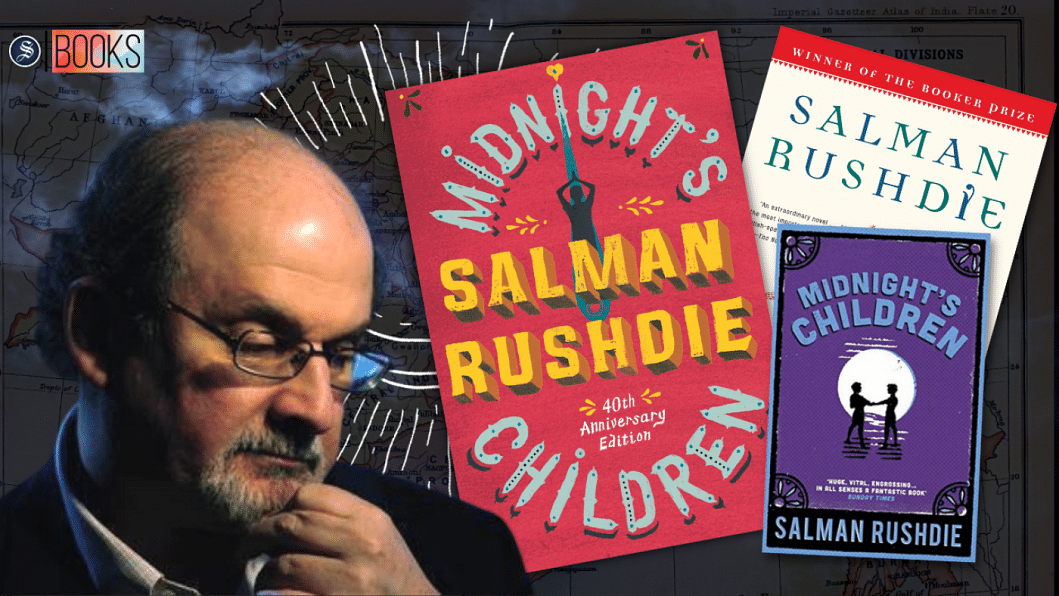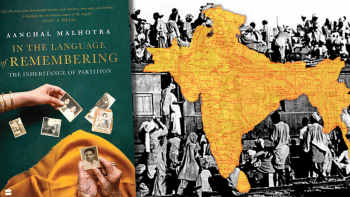How Salman Rushdie’s ‘Midnight’s Children’ changed my life

I was 16 years old when I read Salman Rushdie's Midnight's Children (1981) for the first time. I had not had my introduction to magic realism yet at that point of time. My 11th grader self had not even read Marquez yet.
My college library had a diverse collection to offer for avid fiction readers like us, who would devour absolutely anything and everything. The library was pretty much the reason I would show up every day, and it was on one such fine morning when I got my hands on the paperback edition of Rushdie's novel. The cover had a simple, plain, off-white background, with the title calligraphed on it in a sombre yet striking red font, indicating the duality the book was about to uncover. The simplicity of it all caught my attention.
What happened in the three following weeks was nothing less than magic. I found myself unable to stop reading. I would carry the book to dinner and read it in stealth during classes, under the covers of textbooks. This was an opening to a whole new world for me. Midnight's Children became my midnight's musings. Now that I come to think of it, maybe my fascination for words was only strengthened by the book, which worked in time to turn me into a writer.
The story, as we know, starts exactly 75 years ago on this day, at the stroke of the midnight hour, when people of this subcontinent were being divided by hatred and ousted from their homes based on their religious identities. Because of some strange tryst with destiny, two newborns were swapped at midnight—when two nations were on the brink of inception—and doomed to live each other's lives when the times-they-were-a-changin' rapidly.
Metaphors have never made more sense to me than when these two swapped but intertwined lives personified India and Pakistan, the two newborn countries, whose births were marked by blood, pain and trauma. For someone who knew nothing about magic realism, it was the unfolding of an entire universe that I still carry within me. It is a lot for someone who deals in words regularly. Words never escape me for even a moment, but I still carry on with Rushdie's universe in my heart. Truth be told, I would not have it otherwise. That's how deep a mark the book left in my psyche.
This subcontinent suffers from a collective partition trauma, till this day. The seeds of hatred and intolerance that fueled the events of that time have become even more rampant in their presence and influence.
At the age of 16, these events were nothing more than history lessons to us, school-going children who got to know all of it from texts offered to us at school. But with each passing year as we have grown, we have come to understand the psychology of communal intolerance with which this subcontinent is plagued. In my case, Rushdie's novel played a huge role in creating the base for this understanding, at that young age. The understanding that the politics of division goes way beyond an individual's life, but affects it nonetheless.
Saleem Sinai, the novel's narrator and protagonist with telepathic powers and extreme senses of smell, takes me on in his journey as he goes on to discover and assemble other midnight's children with extraordinary powers, like Parvati the witch and his arch nemesis, Shiva the "knees". In the process of each of their experiences, Rushdie weaves other timelines for me to live in, he allows me to be a part of Saleem's journey who sees it all—from an amnesiac exile to a soldier in the Sundarbans of 1971, when another country is on the brink of its birth from the existing two, to India's emergency and Sanjay Gandhi's "cleansing" of the Jama Masjid Slum—all with a sly, dark and humour-coated choice of words that makes the trauma of the events even more prominent.
As I write this, the subcontinent is remembering the 1947 Partition on its 75th anniversary. One country is celebrating its day of independence, while the other prepares for the same. In another corner of the world, Salman Rushdie, my favourite wordsmith, is fighting for his life.
"To understand just one life you have to swallow the world ... do you wonder, then, that I was a heavy child?", Rushdie writes in the novel. Very few writers have reflected my feelings with such clarity. As I read back the words I have been able to write here so far, I see a lot of nonsensical gibberish as my aching heart finds it difficult to put my thoughts into words.
But I'll have to say this. In a world that is so divided by hatred and intolerance and so united with a collective feeling of hopelessness, the magic created by Rushdie is my solace. His words work as music to my soul, and at other times, offer the reminder of the little bird in Midnight's Children. It whispers, "Be fair! Nobody, no country, has a monopoly of untruth."
Nahaly Nafisa Khan is a writer and journalist. She is working as a sub-editor at The Daily Star's City Desk.

 For all latest news, follow The Daily Star's Google News channel.
For all latest news, follow The Daily Star's Google News channel. 










Comments